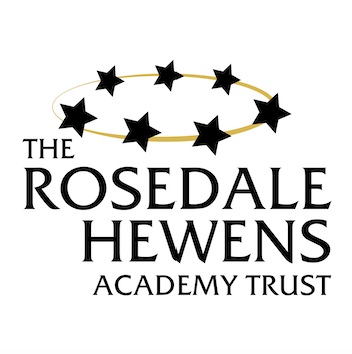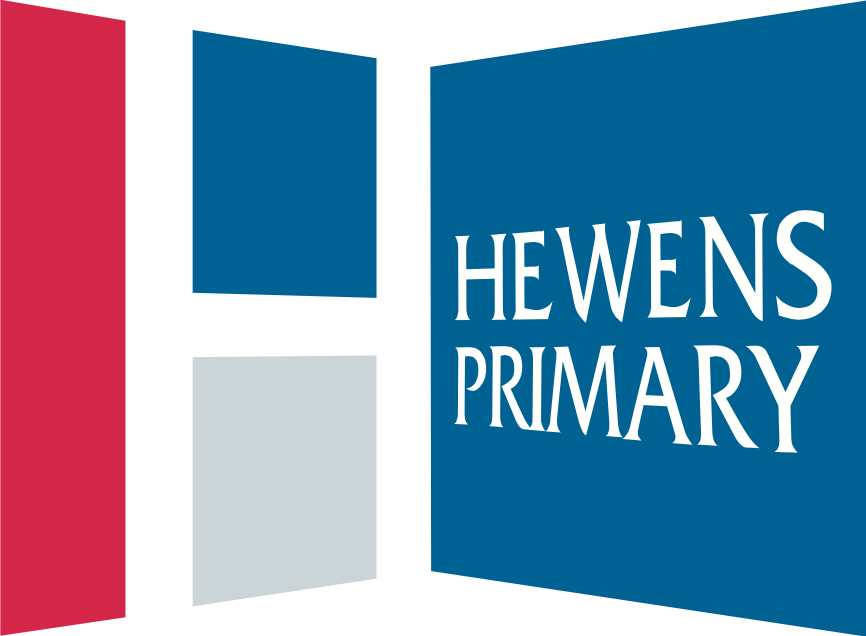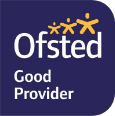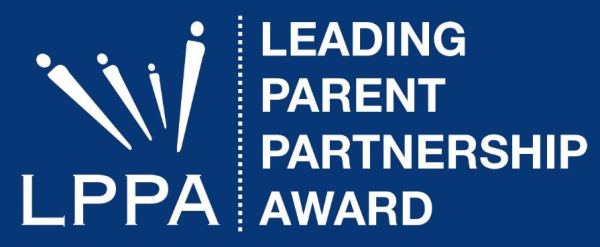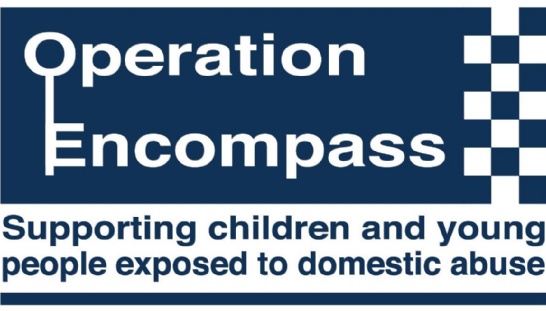Curriculum Content
The Curriculum
At The Hewens Primary School we are committed to delivering the National Curriculum. Staff have worked hard to revise schemes of work to bring them in line with the new expectations and the topic webs that can be found within this section illustrate these changes. All staff have received training in the developments and changes within the 2014 Curriculum. The new schemes of work will be continually reviewed to ensure that they provide opportunities for children to develop the skills they require to become life-long learners.
Our school is guided by the principles, values and policies, which have delivered success for learners consistently across The Rosedale Hewens Academy Trust (the Trust). As such, one of our fundamental beliefs is that children thrive in educational settings where they are each known as individuals. Hewens Primary is committed to ensuring that members of staff actively engage with parents, guardians and carers in planning each child’s learning journey. Our setting is a place where children are happy and enjoy their learning, experiencing inspirational standards of teaching which allow them each to flourish and reach their full potential.
We encourage courtesy and respect and recognise that the development of these and other social skills will be significant, enabling each child to be successful. As parents, guardians and carers you are vital partners in all the work we do. It is important that together we build a firm relationship between home and school. As each year passes, we hope that your child will enjoy the stimulating and caring environment in order to achieve as much or reach as far as they can, both socially and academically, by striving for ‘excellence every day’.
In Early Years, we follow the Foundation Stage curriculum linked to the three prime areas and four specific areas. The prime areas include Personal, Social and Emotional development, Communication and Language and Physical Development. The specific areas include Literacy, Mathematics, Expressive Arts and Technology.
In Years 1 through to 6 we teach Mathematics and Literacy, following the National Curriculum objectives. Other subjects, which include:
- Science
- Music
- Art and Design
- Design and Technology
- Computing
- Geography
- History
- Religious Education
- Physical Education
These are taught through a topic based curriculum (please see Curriculum Map under Documents and Policies for topic headings in each year group).
Please peruse our curriculum content for each Half Term so that you better able to support the children’s learning at home.
Curriculum Content
Approach to the Curriculum
One of our fundamental beliefs is that the school curriculum is co-constructed with the children; this means the children contribute their ideas to lesson planning.
Hewens Primary School follows the same curriculum as Rosedale and Brookside Primary Schools, therefore the children enjoy learning in collaboration with their peers through joint workshops, school trips, events and activities.
Our topic based curriculum is taught through a progression of skills from Years 1 to 6, within each subject area.
Reading
At Hewens Primary School, we use Read, Write, Inc to teach phonics. This scheme provides solid foundations in the Early Years for learning to read. The children can progress quickly from learning initial sounds to reading whole words and subsequently the joy of reading sentences within their reading books. This scheme promotes the links between reading and writing.
At Hewens Primary School, we use Read, Write, Inc to teach phonics. This scheme provides solid foundations in the Early Years for learning to read. The children can progress quickly from learning initial sounds to reading whole words and subsequently the joy of reading sentences within their reading books. This scheme promotes the links between reading and writing.
Early Years
We believe that, every child deserves the best possible start in life and the effective support that enables them to fulfil their potential. Children develop quickly in the early years and a child’s experiences between birth and age five have a major impact on their future life chances. A secure, safe and happy childhood is important in its own right. Good parenting and high quality early learning together, provide the foundation children need to make the most of their abilities and talents as they grow up; EYFS (2017, DfE). With this in mind, children within our Early Years settings learn through a quality, play based curriculum, which is carefully planned. This ensures that all children learn, grow and progress, developing all areas of the Early Learning Goals both independently as well as with others. It is here that children become more aware of the ‘6R’s of Respect, Resilience, Resourceful, Responsible, Reflective and Rational and where they can start to embed these qualities, which are an integral part of the school’s ethos.
Early Essence
Early Essence is a secure online assessment and reporting system, which we use across our Early Years provision. This is a system that personalises learning, and where videos and photos can be uploaded along with observations, allowing us to accurately track children’s progress; this helps us to see what the next steps are for children in their development. This system also benefits the parent, enabling them to follow their child’s learning journey and contribute to the record through photos and observations from home. This software produces accurate reports as required for the school, parents,guardians, carers and governors.
The following link will guide you through the features of the Early Essence assessment and reporting system:
Read Write Inc.
We are a ‘Read Write Inc.’ school (RWI). This programme is used across all primary schools across The Rosedale Hewens Academy Trust (the Trust), to support children in developing their reading and writing skills. It is a phonics based programme, which starts in the Early Years, moving into KS1 and into KS2 where further support is needed.
Fred the Frog puppet plays an important role in our Read Write Inc lessons. Fred is only able to speak in sounds, not whole words. We call this Fred Talk. During lessons children are taught to hear sounds and blend them together in sequence to make a word. As soon as children have learnt a few initial letter sounds they begin to learn to blend the sounds together to read real words in a Word Time session. Each word time session involves oral blending of known sounds before they are shown the words written down on green cards. Children practise with Fred talking the words until they become able to read them on sight. Ditty lessons follow on from this where children who are becoming excellent at reading single words are introduced to reading whole sentences. Once children are confident reading the short sentences they are challenged to use their developing phonic knowledge to write a sentence.
Please click on the following link to find more information on Read Write Inc.: Read Write Inc.
Below are some more links to useful websites that provide fun learning activities to help children with reading and writing:
Phonics and RWI
In Year 1, children take part in the National Phonics Screening Test, which has been a statutory assessment since 2012. The Trust follows the RWI sequence of sounds – Your children learn that in RWI the individual sounds are called ‘Speed Sounds’ and are taught in a particular order. There are 12 sets altogether. The first set of sounds taught are m, a, s, d, t, i, n, p, g, o, c, k, u, b, f, e, l, h, sh, r, j, v, y, w, th, z, ch, qu, x, ng, nk. They then work through Set 2, into Set 3 where they are taught that there are more ways in which to say the same sound, for example, ai as in rain and ay as in play.
The links below enable you to watch a series of videos from supporting your child’s handwriting to blending with your child:
Rising Stars
Rising Stars are assessment resources for Reading, Grammar and Mathematics, which are used by all primary schools within the Trust, to help us when measuring children’s progress each term. These summative assessments are used alongside teacher assessments, which together, give us a reflection of the children’s knowledge and abilities. This allows us to see where the gaps are, ensuring that there are no areas that your child has not fully understood.
These assessments have been written by curriculum and assessment experts, including classroom teachers, and are quick and easy to use. Rising Stars were trialled over time in schools with children where the results were evaluated for their effectiveness.
How to Help your Child at Home
We believe parental support is pivotal with regard to children’s learning and development. With our busy lifestyles it can sometimes feel impossible to find quality time to sit down and support your child with their learning. It can also be very difficult to think of ideas, particularly with today’s busy lifestyles. Here are just a few hints, tips and ideas to get you started. There are lots of little things that you could do in everyday routines to help your child with their learning, which means that when time is short you can still support your child with their learning:
Shopping:
-
Ask your child to count a given number apples (or other items) into the bag for you.
-
Give your child a shopping list and their own basket.
-
Allow the child to pay for items and work out how change they should get back. I’m buying 5 apples and they are 25p each how much will it cost? How much change will I get from £5?
Car Journeys and other Travel:
-
Ask your child to work out how long it will take to get to your destination if you’re travelling at this speed over this distance.
-
Count how many motorbikes you see as you go along.
-
Ask your child to recite their times tables, starting from 2 then working their way up to 12 times table, every time they make a mistake they go right back to the beginning with their 2 times table (This really does work very quickly).
-
I’m buying 5 apples and they are 25p each how much will it cost? How much change will I get from £5?
At Home:
-
Ask your child to set the table for you; how many knives and forks will we need?
-
Bake with your child; develop measuring skills, convert measurements from pounds and ounces to grams and kilograms or the other way round. Look at timings for cooking.
-
Develop children’s fine motor skills by getting them to help you chop vegetables, peel potatoes etc.
-
Count up and down the stairs.
Below are some websites, which can also be used to develop learning in specific areas:
For further information about our curriculum, please see the weekly School News publications, speak to your child's classroom teacher or contact the school directly on 020 8845 6634.

